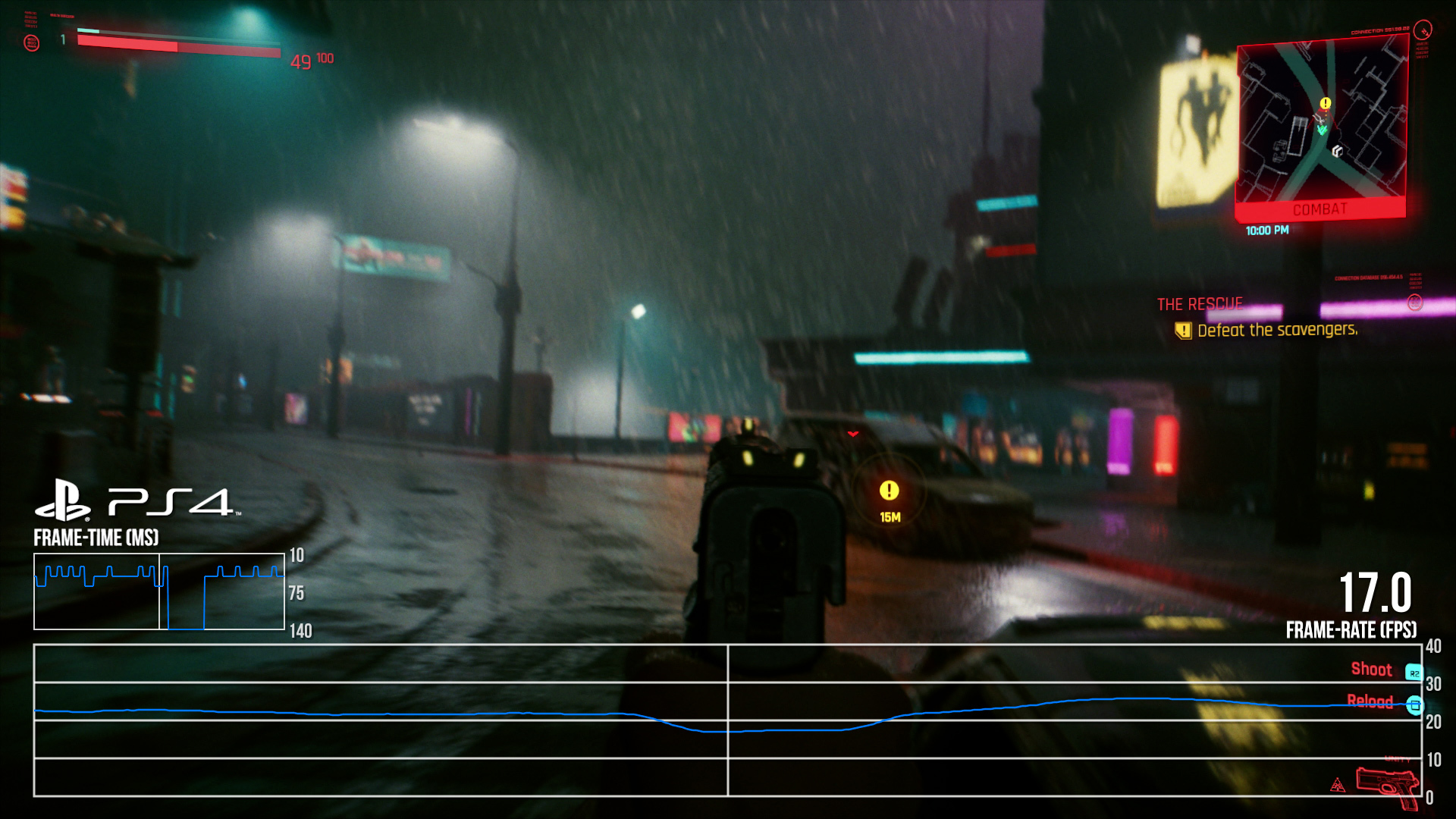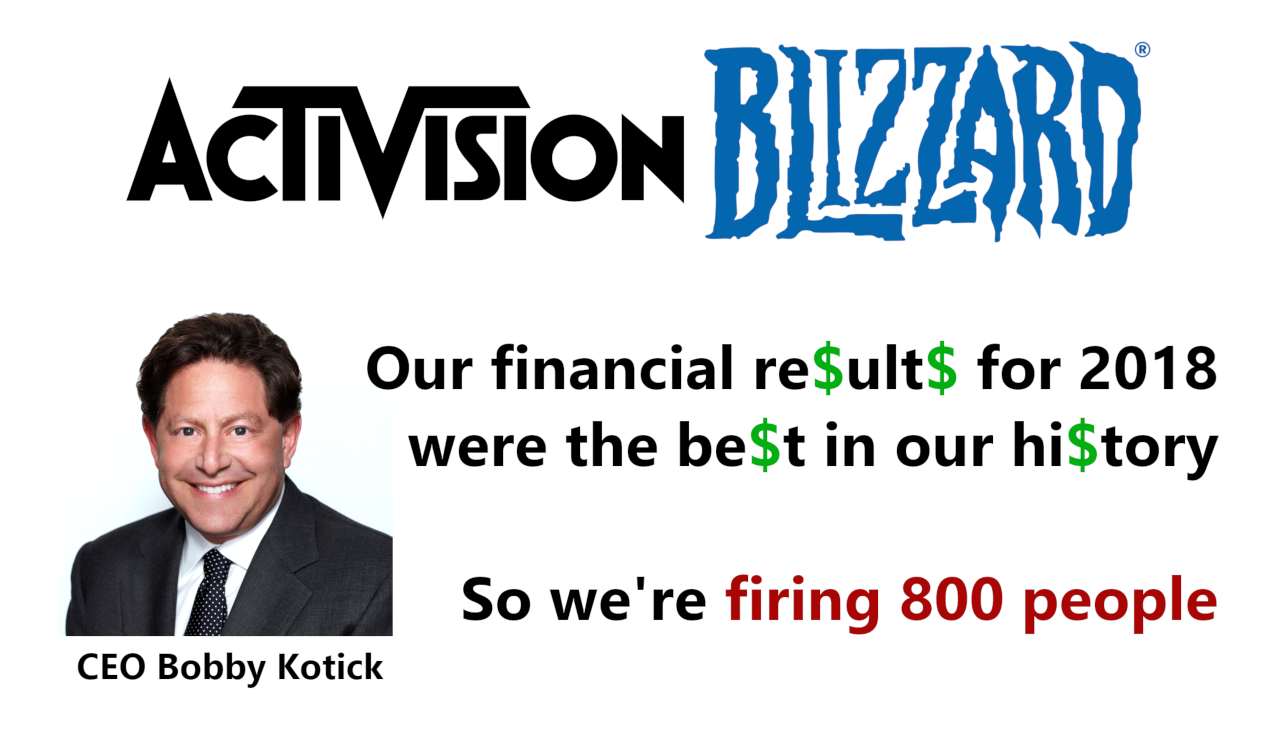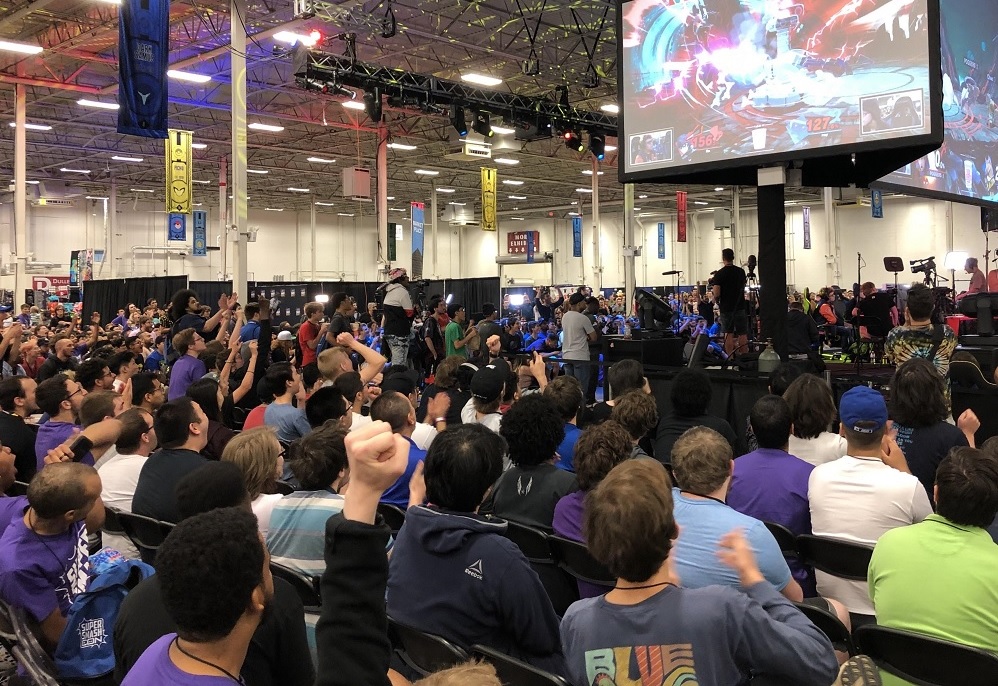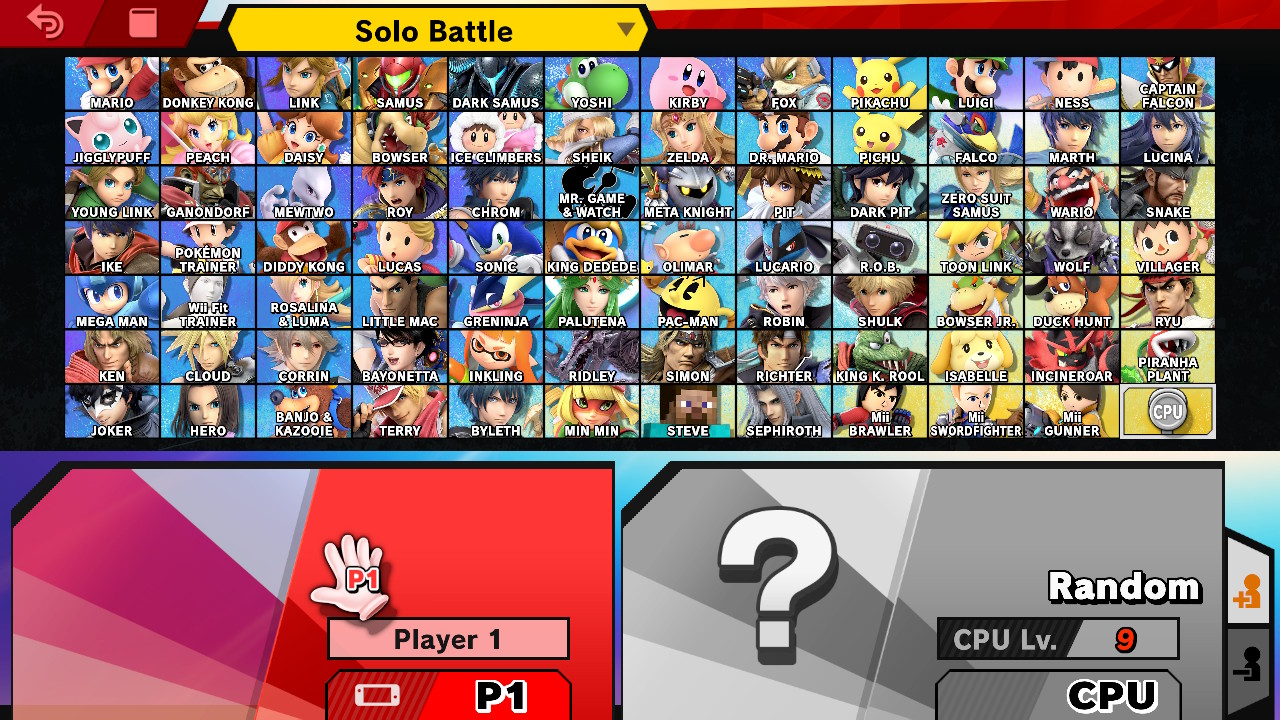Game Companies: Stop Treating your Customers Like Crap
 To put that 17 FPS metric in perspective, Zelda: Ocarina of Time ran at a rock-solid 20 FPS. Credits to digitalfoundary.net for the image
To put that 17 FPS metric in perspective, Zelda: Ocarina of Time ran at a rock-solid 20 FPS. Credits to digitalfoundary.net for the image Disclaimers
-
Do not direct any hatred at any employees of CDPR, or any of the other companies that I've mentioned in this post. 99% of the people that work at these companies likely just want to make good games.
-
With that said, going out of one's way to buy broken games because "you should feel sorry for the developers and support the industry" is simply perpetuating the problem and enabling these greedy companies (i.e. EA, Activision-Blizzard, etc) to continue exploiting their passionate developers, artists, designers, and customers.
-
This post is not outrage bait for Cyberpunk 2077. Please read the entire post before dismissing it as such.
The Context
If you've been out of the gaming loop for the past couple of weeks, you may have missed that Cyberpunk 2077's launch has been an absolute mess (on consoles, anyway). Below is my best attempt at a timeline of this game's truly horrible development and subsequent launch:
- Riding high from the success of The Witcher 3, beloved developer CDPR bragged on multiple occasions that their hip game dev studio doesn't force their employees to "crunch", which is a cutesy name for the cruel practice of forcing mandatory, grueling overtime on their employees. Unfortunately, such a practice is common in the gaming industry.
- Cyberpunk 2077, being in development for roughly 9 years, was set to release in August 2020, but then delayed to September, then to November, and then to December. In order to meet this December deadline, the studio went back on their word and forced their company into "crunch time". Oops.
- The game goes gold and pre-release copies are sent to media outlets for review. Conspicuously, these reviewers weren't allowed to use their own footage when writing reviews. In addition, they were only sent PC versions of the game, despite the fact that 41% of the game's pre-orders were for consoles. Many, many mainstream game review publications (IGN, gamespot) didn't do nearly enough to highlight this fact in their reviews, and showered the game with 9's and 10's.
- Metacritic, ever complicit in the vicious cycle of game industry/advertising corruption, had given the Xbox One and PS4 versions of the game a 91/100. This has since been changed, but the damage had been done.
- Unsurprisingly, the game was released in an absolutely unacceptable state on PS4 and Xbox One, despite those consoles being the primary targets for the majority of the game's development. Surprisingly, the game also runs pretty terribly on the PS4 Pro and Xbox One X, as well. The game runs OK-ish on PC, as long as you have great hardware.
- CD Projekt Red apologizes "for not showing you the game on base last-gen consoles". In other words, they're sorry for intentionally deceiving 41% of their customers, and getting blasted on the internet for it. They also have the nerve to call PS4/XO "last-gen" when the new consoles released just last month, and it's almost impossible to purchase a PS5 or Xbox Series X (they are sold out literally everywhere at the moment, except for absurdly high prices on amazon/ebay)
- In a move that should be illegal, but for some reason isn't, Microsoft and Sony are refusing refunds for the game, telling players to wait for patches. Patches that no one even knows what they'll contain or what they'll address. UPDATE: in a rare win for the consumer, both companies are now offering refunds. This is likely to avoid legal scrutiny for not allowing digital refunds for all products, period, but a win is a win, I suppose.
I think that covers most of it. If you can't tell, I don't quite buy the sincerity of their apology, nor do I think that this long list of mistakes can be boiled down to "aww shucks, guys, we really messed up! We'll strive to do better for our passionate fans next time!"
Rather, I think that every single step that CDPR took was calculated and deliberate with the intention to exploit their employees and consumers as much as possible. Put simply, CDPR simply tried to cash in a huge consumer-goodwill check, and that check bounced.
From "Good Guy CDPR" To Bad Guy
As I said above, at the surface, this post is about Cyberpunk 2077, but when you think about the gaming industry, the long bullet-point list above is really nothing new. Remember how badly we all hated (or currently hate) EA? Or Ubisoft? Or Activision-Blizzard? These companies' reputations have all been tarnished for similar reasons: they have abused the trust and goodwill of their customers by releasing buggy, broken, unfinished, or otherwise unrepresentative games.
With that said, then why has the internet's reaction to CDPR and Cyberpunk 2077 been so visceral and emotional? What makes this different from a typical EA or Activision-Blizzard blunder?
I think that the difference lies in brand perception. It's worth noting that companies spend millions of dollars in advertising to establish something known as a "Brand Image", which is a term to describe how consumers associate ideas, feelings, and imagery to a brand. Getting this right is extremely important for the long-term success of a company because customers will be more willing to spend money on a company's products if they associate positive feelings towards that company.
For example, what do you think of when I say "Activision-Blizzard"? For me, I see vivid imagery of landfills, cocaine, casinos, economic crisis, and depressed children. That probably makes Activision sad, but their actions over the years have cultivated those images in my head. Therefore, as a result of my negative outlook on their brand, I'll likely never buy an Activision-Blizzard product for as long as I live. For those of you reading this article, I'd guess that most of you have a similarly-negative association with the Activision-Blizzard brand for a variety of reasons.
 This actually happened. Credit to this reddit post
This actually happened. Credit to this reddit post
CDPR, on the other hand, through sheer hard work and dedication to their craft (and maybe some help from the Polish goverment), had managed to cultivate a much more positive brand image. If we were to repeat that brand-word-association exercise with CDPR before the release of Cyberpunk 2077, I'd imagine that the words that most gamers would come up with would be much more positive.
Therefore, CDPR and the release of Cyberpunk 2077 has made waves across the game industry not because "game company does scummy, anti-consumer thing" is newsworthy, but because CDPR had previously been perceived as "one of the good guys" among the faceless, soulless, and spineless game companies of the industry. If Cyberpunk 2077 were to be developed by EA, for example, most gamers would simply roll their eyes and cluck their tongues, chastising the young and naive for buying into the hype. But this was CDPR. They were one of us. I imagine that, for long time fans of the studio, Cyberpunk 2077's blunder felt like a deep betrayal from a long time friend.
The latest drama from CDPR and Cyberpunk 2077 was especially surprising to me since CDPR could have learned from the many game studios before them that had gone from beloved to hated in the span of one game release: Bethesda (Fallout 76), Bioware (Mass Effect: Andromeda, or arguably, Mass Effect 3), Hello Games (No Man's Sky), Blizzard (the Diablo: Immortal Fiasco, or the Warcraft III fiasco), Bungie (Destiny). The list could go on, but the point is clear: someone at CDPR failed to do the necessary literature review.
Feel the Wrath of the Gamer
With that said, why are companies like CDPR making the same mistakes that so many companies before them have made? Why have companies like Activision-Blizzard, Bungie, Bioware, and Bethesda thrown away their perceived "good guy" brand images so quickly and easily, when it's taken them years, or even decades, to cultivate?
Obviously, all of these decisions are driven by the need to make money. I get it: game companies need to make money to function and to produce the products that we enjoy. But why did CDPR need to deceive the public about Cyberpunk 2077? Why couldn't they heed the wise words of Shigeru Miyamoto and delay the game until it was good and ready? In general, why are these companies so flagrant about treating their customers poorly?
One might argue that the correct answer is often the simplest: game companies simply don't care what gamers think, and just want to make as much money as possible, public perception be damned. Gamer outrage is typically short-lived and typically isn't representative of overall customer sentiment, so I wouldn't blame game companies if they simply ignored it.
Despite this being a simple explanation, however, I don't think that it's accurate: historically, there's been several high-profile cases of public outrage having a significant impact on a company's decision making.
For example, EA's Battlefront II in 2017 outraged many with it's outright disgusting implementation of the lootbox system in a Star Wars game designed for children, released during the holiday season. After facing significant backlash that managed to reach mainstream media outlets like CNN and Fox News, they had this to say:
I don't have the data to prove it, but to be frank, EA could have made a killing from this game if they had left their original, highly-predatory, gambling-like system in place. But they must have determined that the outrage and negative sentiment from its customers outweighed the short-term profits gained from this system, and backed out at the last minute.
EA's decision, despite being a single example, suggests that companies do care what gamers think, and that negative sentiment does have a significant financial impact on game companies. Therefore, I'd argue that theres a different, more subtle reason why companies keep making mistakes that betray their passionate, dedicated fans.
No One Understands Me
Instead, I think that companies make consumer-hostile decisions to the detriment of their brand images because of a fundamental misunderstanding of a critical component of the game industry: the customer. In other words, "the gamer".
How can these game companies not understand gamers? First, let me explain how gamers are different from your average consumer: while paradoxical at first glance, I argue that gamers are both undyingly loyal and incredibly fickle at the same time.
It makes sense when you think about the kinds of products that the game industry offers. No other industry sells a $60 product that can offer tens, hundreds, or even thousands of hours of enjoyment, professional-level storytelling and acting, and cutting edge technology and graphics. No other industry creates worlds and characters that we can both bond with and control. No other industry offers a product that gives us all of these features coupled with online infrastructures that allow us to communicate with total strangers or long-time friends in real-time, anywhere in the world. Games can be used a mechanism for competition, as escapism, as a social gathering place, or just to kill time. In my opinion, there's nothing on the market quite as technologically-advanced, engrossing, or immersive as gaming.
As a result, more than any other industry, the game industry's consumers (i.e. gamers) tend to get personally and emotionally attached to its products and the companies that sell them. Other industries would kill for a customer base as loyal, proud, and dedicated as gamers.
 A pic from Super Smash Con 2019, a convention where people get together from around the world to play Super Smash Bros. As an attendee myself, the excitement and enthusiasm from the crowd was palpable. Credit to this reddit post
A pic from Super Smash Con 2019, a convention where people get together from around the world to play Super Smash Bros. As an attendee myself, the excitement and enthusiasm from the crowd was palpable. Credit to this reddit post
But because gamers can be so personally and emotionally invested in a company and its products, this also means that, more than any other kind of customer, they tend to react much more emotionally when companies betray them. While this can seem downright immature at first blush, consider it seriously for a second: many of these fans have spent countless hours participating in online forums, reading wikis, writing FAQs, participating in e-sports tournaments, or going to conventions. These fans have made these games or franchises core parts of their lives and their identities, and that's something that should be cherished and celebrated. Frankly, it's awesome and amazing that humans can come together and bond over something in this cruel, meaningless world of ours.
But to cut corners and betray your consumers as a game company is to signal to these fans that their time, dedication, and passion doesn't matter. It's as if to say, "We know that you liked our previous games, but we don't care about that. We're simply going to exploit your passion and dedication so that you buy our new game, or spend lots of money on lootboxes to appease our shareholders". If you were one of these fans, wouldn't you feel, on some level, a little indignant and hurt? Wouldn't it feel like a figurative slap in the face? In that sense, maybe it's a little misguided to call gamers "immature" or "entitled" when they react a little emotionally when their favorite developer (CDPR) deceptively releases a broken game (Cyberpunk 2077 on consoles).
Therefore, it's especially important for game companies to know this crucial fact about their customers: gamers tend to have an especially-low tolerance for being mistreated. It also doesn't help that gaming isn't a necessity, so unlike cars or appliances, a jilted gamer can simply stop buying your products. Or worse: since gaming concepts aren't copyrightable, gamers can simply find a game that looks or plays similarly from another company.
In a perfect world, this wouldn't be an issue, as the people making games would typically be gamers themselves. Or at the very least, they'd be able to empathize with their customers, which would allow them to avoiding making decisions that would irreparably damage their relationships with their customers.
But the harsh reality is that the gaming industry is a $160,000,000,000 industry. There's far too many people in this world that won't let all of that potential money simply sit there, unearned. As a result, people that don't give a shit about making great games enter the industry. Gaming is no longer your fun little obscure hobby, and it hasn't been that way for a long time. It's a business, man.
As a result, for many medium-to-large game companies, these kinds of non-gamers tend to be the ones making many of the decisions, while the people who just want to make good freaking games go unheard and ignored. And unfortunately, the people that don't care about gaming also don't understand what it means to be personally invested in a game, a franchise, or a game company. These people likely don't even enjoy videogames. For example, Activison-Blizzard's CEO, Bobby Kotick, said that he never actually liked or played videogames in a 2009 Forbes interview, something he has furiously backtracked on and denied since then.
People like Bobby Kotick, for example, have likely never stared in awe at the sheer absurdity of Super Smash Brothers Ultimate's character select menu and marveled at the possibility that they could now have Sonic, Mario, Ryu and Cloud fight to the death. They've never felt the rush of escaping The Maw in a lone Warthog at the end of Halo, right before the ring's self-destruction. They don't have fond memories of Warcraft III LAN parties every weekend, nor have they ever laughed uproariously while playing Jackbox Party with their non-gamer family.
 Even if you don't enjoy Super Smash Brothers Ultimate, most can recognize the significance of having Mario, Sonic, Ryu, Megaman, and Cloud in the same game. Super Smash Bros is a wonderful, reverent celebration of gaming.
Even if you don't enjoy Super Smash Brothers Ultimate, most can recognize the significance of having Mario, Sonic, Ryu, Megaman, and Cloud in the same game. Super Smash Bros is a wonderful, reverent celebration of gaming.
I'm not saying that these non-gamers are bad people (well, Bobby Kotick actually is a bad person, but that's another article for another day), nor am I gate-keeping the term "gamer": a gamer is simply someone who plays videogames, regardless of how much or how little they play. There's also nothing wrong with entering an industry or career with the sole purpose of making money. That doesn't make you or anyone else a bad person.
I'm simply pointing out that there's an obvious disconnect between the people making these short-sighted decisions to chase short-term profits, and the customers that they're supposed to be serving. To me, it's clear from the numerous, repeated mistakes from once-beloved game companies that there's a clear pattern of undervaluing customer trust in the gaming industry, and this is because games and gamers are different than your typical product/customer.
To put it another way, screwing over your customers when you're the CEO of Blizzard is going to be a hell of a lot worse than if you're the CEO of a company like Samsung or DELL. Nobody has an emotional, nostalgic attachment to a Samsung Galaxy or a Dell Ultrasharp Monitor. But when you screw over long time fans of a nostalgic, revered franchise, then there's gonna be major issues.
So, when a non-gamer has crunched the numbers and has determined that it makes financial sense to ship a broken game, or to make the next game in a beloved franchise a mobile game instead of a proper PC/console release, or to cancel an online Super Smash Tournament in the middle of a global pandemic because they're using a mod to play online, they've likely missed this crucial point: there's an emotional attachment to these games that these management figures don't get. They're unable to empathize with these gamers or the emotional connections that they have, so they have no idea what kind of dollar amount to assign to screwing over their customers. As a result, the calculations and metrics that these management types love to rely on so much usually end up totally off the mark.
When these calculations are totally off the mark, terrible things happen: Fallout 76. Mass Effect: Andromeda. Diablo Immortal announced at Blizzcon. And now, Cyberpunk 2077 on consoles. These are all huge, costly mistakes for these companies that I'm sure that they wish they could take back or do over. I'd argue that if they had assigned a greater importance to customer loyalty, they may not have made the same mistakes.
A Cautionary Tale
I hope that game companies, including CDPR, finally start to realize how valuable customer trust can be, and how important it is to not abuse that trust. Even though I've spent the last dozen paragraphs criticizing certain game companies, I don't want to see game companies fail. My intent with this post is to bring to light why they are failing, and how companies can avoid making these same mistakes in the future. I want to see more great games get made, I want to see more people playing games, and I want to see boundaries being pushed.
But that can't happen if companies keep making the same grave mistake over and over again. So, listen up, EA's, CDPR's, and Nintendo's of the industry: pay attention to what unfolds after the CDPR Cyberpunk 2077 drama. Take notes on how customers felt betrayed and misled. Study how glaringly transparent it was when reviewers could only use trailer footage in their reviews. Review CDPR's apology that they posted on Twitter, observe how much of a non-apology it was, and see how little effect it had it mollifying gamers' concerns.
Finally, compare and contrast CDPR's sales for Cyberpunk 2077 against the next game that they release. I bet it won't be pretty.
Comment Policy: no flamewars or trolling. Just have fun and be nice!
